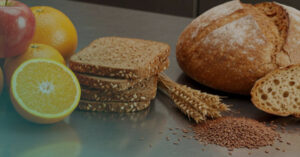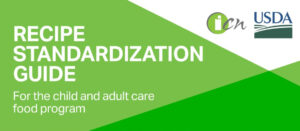Posts Tagged ‘institute of child nutrition’
Cooking with Herbs and Spices
Incorporating herbs and spices into recipes enhances flavor, aroma, and color while reducing the need for excess salt, sugar, and fat. Our partners at the Institute of Child Nutrition define herbs and spices, reviews the health benefits of using fresh or dried herbs and spices, and provides ideas for incorporating them into recipes.
Read MoreCulinary Basics: Knife Skills
Ensuring maximum safety in the kitchen is crucial, and following basic knife guidelines is essential for everyone’s well-being. Once knife safety is mastered, this essential skill can lead to an increase in scratch preparation. Our partners at the Institute of Child Nutrition outline the importance of knife safety, skills, maintenance, and storage.
Read MoreCACFP Outreach
If you are a child care operator currently participating in the CACFP, congratulations! Your commitment to serving nutritious meals and snacks is crucial in fostering healthy behaviors in young children. This Mealtime Memo from our partners at the Institute of Child Nutrition highlights the benefits of the CACFP for operators, children, and families.
Read MoreNutrition Basics: Fiber
You may know that fiber is important, but do you understand why or how much you need? This Mealtime Memo from our partners at the Institute of Child Nutrition covers fiber sources, health benefits, and strategies to increase fiber intake.
Read MoreProcessed Foods: Making Nutritious Choices
There is a common belief that processed foods, with their high fat, sugar, and salt content, are inherently unhealthy. Did you know some items we consider “nutritious,” like bagged spinach or prepacked apple slices, are also processed foods? Our partners at the Institute of Child Nutrition delve into the different levels of processed foods and offers guidance on making healthy choices.
Read MoreReducing Salt Intake
Early childhood is a critical time for developing taste preferences. The food eaten by children during this time can influence their eating habits for many years. One challenge is the allure of salty flavors. However, too much sodium or salt intake can pose health risks. This Mealtime Memo from our partners at the Institute of Child Nutrition will demonstrate how to identify sodium in products and provide healthy food alternatives.
Read MoreRecipe Standardization Guide
The Institute of Child Nutrition’s Step-by-Step Recipe Standardization Guide for the CACFP is a comprehensive guide designed to facilitate recipe standardization within the CACFP. The “how-to” manual is a complete resource, detailing the initial recipe development stage to the final implementation.
Read MoreHealthy Snack Ideas
Healthy snacks taste delicious and fuel children’s growing bodies, laying the foundation for a lifetime of healthy choices. The Institute of Child Nutrition’s Mealtime Memo explores practices to incorporate nutritious, fun, and creative snacks into menus.
Read MoreCulinary Basics: Mise En Place
If you are not a chef or lack a culinary background, the term “mise en place” may seem like French to you. However, it is a necessary skill to utilize in all kitchens (big and small) when preparing meals. The Institute of Child Nutrition’s May Mealtime Memo will define the term and identify the steps to maximize efficiency and reduce errors in the kitchen.
Read MoreBest Practices to Improve Nutrition
March is a month to celebrate nutrition and wellness. It is also a time to educate and bring awareness to the CACFP. This Mealtime Memo from our partners at the Institute of Child Nutrition provides the USDA optional best practices you can use to strengthen the nutritional quality of meals served.
Read More









